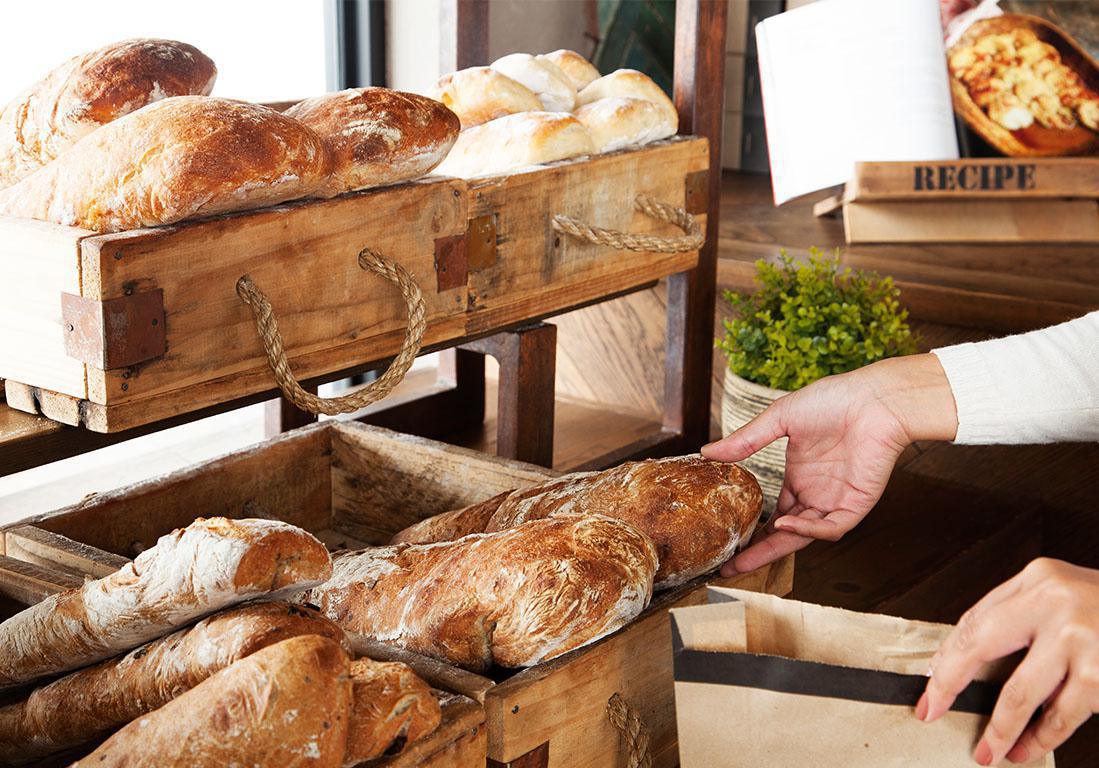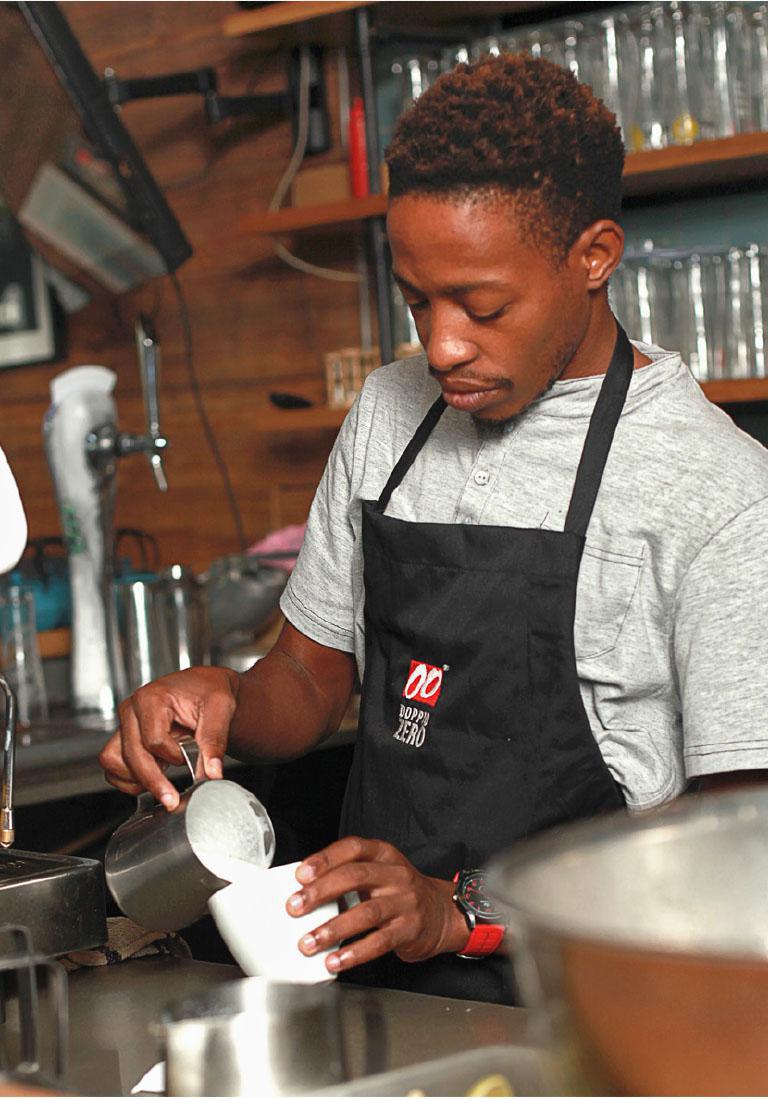“We didn’t have zoning for a restaurant, so we opened a bakery, with tables”
Doppio Zero owner, Paul Christie, moved to Johannesburg in 1992 after studying in Cape Town. He opened a number of convenience stores and small restaurants, but it was in 2002 that he and his business partner, Miki Milovanovic, secured the Greenside location for Doppio Zero.
Modest beginnings
Christie says at the time the site didn’t have restaurant zoning and Milovanovic had a baking background. They combined forces to create a business opportunity. “My partner and I started Doppio Zero in 2002, at this Greenside location. It was somewhat of a hidden mystery. We didn’t have zoning for a restaurant, so we opened a bakery, with tables.” Doppio Zero took off. At that stage there weren’t a lot of pavement restaurants or cafés around. We were very successful and grew from there. We started opening new stores and decided to go the franchise model. But I think fundamentally Doppio Zero had always been about bakery, good food and good value so it held us in good stead with our customers. “Doppio zero” is Italian for finely milled white Italian flour, which is great for ciabatta and focaccia, and the preferred flour for pasta and pizza bases. “We use imported doppio zero flour from Italy for our pizzas. So our pizzas have a different strength and texture consistency. So it gives you a nice thin crust and it makes a big difference.”
Start-up challenges
Christie says access to capital is always a challenge. “We had a private funder who came on board with start-up capital. He is a friend and helped us through our business career. “That was such an important part of getting started, we had a little bit of capital and also approached the bank for some. But private funding was oxygen. It enabled us to get started.” He says finding the right people was a challenge for growth. “I think that’s a global challenge. In this industry we also employ the unemployable most of the time. So we like to get people for whom we can create career paths. “Finding the right level of especially top management is a challenge and just getting through the bumps with a couple of failures and finding good franchisees. I think that’s the final cycle of any business.”
Providing employment
There are two brands in the group, Doppio Zero and Piza ē Vino, employing about 1 000 people. “In the Doppio franchise it will be roughly 600. So we like the fact that we are an employer in this country and hope that we can create more opportunities.”
Customer care
Christie says it is one of Doppio Zero’s key pillars to treat customers as their guests. “Our brand philosophy is to treat our customers like they would be treated in my house. We try to instil that with all our staff and I think we get it right most of the time. But it is a busy restaurant, so we drop the ball sometimes, but we like to recover and make sure our customers are satisfied. When we develop our menu, we get our regulars involved.”
Knowing the idea was a good one
After 15 years, the group has four franchises and 14 restaurants in Pretoria, Johannesburg, Cape Town, and has expanded to Alexandria in Egypt. Christie says: “You know it’s a good idea when the cash registers keep working overtime. So I think in the first year people liked us, we had a lot of publicity, which gave us a lot of confidence and from there we decided to grow. “Growth comes with its own challenges. But I think we tried to keep the essence of the brand, the essence of our service culture and that’s why people come back because they know they will get good food and decent service.”
Future vision
Christie says the vision for Doppio Zero is to expand locally and internationally. “With a footprint in North Africa, we are looking at other markets in the Middle East and Southern Africa. “And as a group we want to start growing Piza ē Vino more aggressively and maybe start another complimentary brand. But I think as an entrepreneur, if you are not growing, you are going backwards.”
Realising the opportunity
For Christie, being an entrepreneur is to look for opportunities, have the drive to innovate and improve, and always try to be ahead of the game. For him, starting out was very much identifying an opportunity and it worked. He says failures on their journey were because they lost focus when dabbling in other business ventures like construction and clothing. They had some setbacks and some restaurants closing down. “We learnt that we needed to take on franchisees with restaurant experience because our business is quite complex with a bakery element, breakfast, lunch and dinner.”
Importance of differentiation
“Differentiation is very important. I always say to young guys coming to me with ideas: How do you differentiate yourself? And it’s not easy, especially in the competitive restaurant environment. We try to reshuffle and throw in a lot of innovation. “Young entrepreneurs should find ways to differentiate themselves from a competitor. That’s very important and to work on your cash flow. That’s a big failure for a lot of entrepreneurs.”
Mentoring
Christie says finding a mentor is a fantastic opportunity. “My partner and I paid our own school fees. My father was my mentor at the beginning. He was also entrepreneurial, self-employed. But along the way we have met some interesting businessmen who inspired and helped us.” He says young entrepreneurs should find somebody to advise them on weak areas. “A lot of businessmen will gladly assist with this. Maybe not in a formal, structured way, but having a cup of coffee. We did that. I remember requesting a meeting with Robbie Brozin of Nando’s, because we were growing and I wanted to ask him what the pitfalls were. It was very interesting, very inspiring. Nando’s is a massive company and his advice was very inspiring.” Ultimately, Christie believes that entrepreneurs should have confidence and a vision. They should not be afraid to make mistakes and should not accept the status quo.
‘I meet a lot of people who say they wish they were more entrepreneurial and I ask myself, what differentiates an entrepreneur? Believing in oneself is a very big part of it.’



